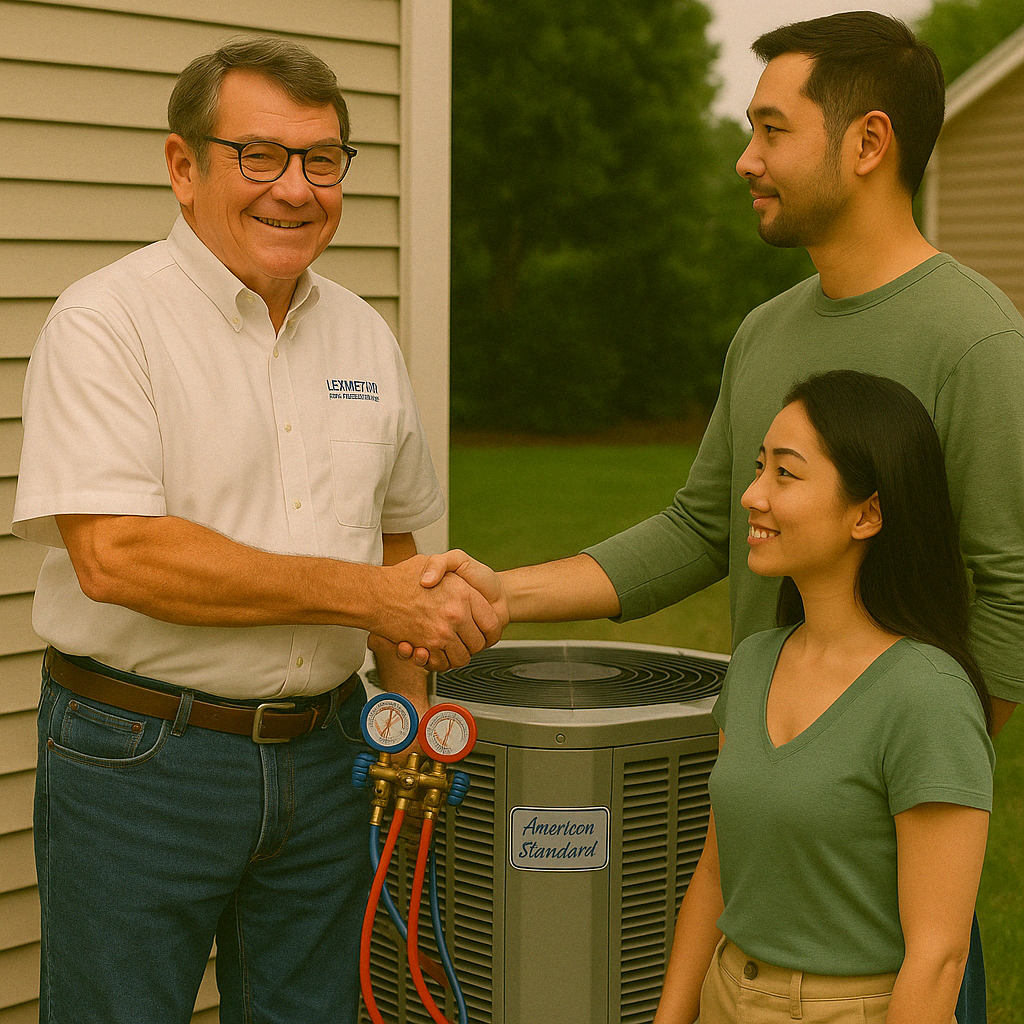HVAC
AC Repair vs. Replacement: How to Make the Right Call
Your Trusted Advisor’s Tips on AC Repair vs Replace: Get the Most Out of Your System
When your air conditioner starts acting up during the sweltering summer months, the decision to repair or replace it can be daunting. As a trusted advisor in the HVAC world, we’re here to help you weigh the options and make an informed choice that suits your home’s needs. With factors like cost, air conditioner lifespan, and performance on the line, understanding when to opt for AC repair vs replace is crucial. Whether your system is a few years old or nearing the end of its life expectancy, we’ll guide you through the HVAC replacement decision process. Let’s ensure your home stays comfortable and efficient without breaking the bank.
Weighing Cost vs. Benefit of AC repair vs Replacement
When considering AC repair vs replace, it’s crucial to evaluate the financial implications of both options. Let’s break down the costs associated with repairs and replacements to help you make an informed decision.
Understanding Repair Costs
Repair costs can vary widely depending on the issue at hand. Minor fixes like replacing a capacitor or refilling refrigerant are typically less expensive than major repairs such as compressor replacement.
It’s important to consider the frequency of repairs. If you’re calling for service multiple times a year, these costs can add up quickly. According to Lennox, frequent repairs might indicate it’s time for a replacement.
Keep in mind that older systems may require parts that are harder to find, potentially increasing repair costs. Additionally, labor costs for complex repairs can be substantial.
Evaluating Replacement Costs
While the upfront cost of a new AC system can be significant, it’s essential to consider the long-term benefits. New systems are often more energy-efficient, which can lead to lower monthly utility bills.
Veterans HVAC points out that many manufacturers offer warranties on new systems, providing peace of mind and potential cost savings on future repairs.
When evaluating replacement costs, factor in potential rebates or tax incentives for energy-efficient systems. These can help offset the initial investment.
Factors in the AC repair vs Replacement
Replacement Decision
Several key factors come into play when deciding between AC repair and replacement. Let’s examine two critical aspects: the lifespan of your current system and its overall performance.
Assessing Air Conditioner Lifespan
The age of your AC system is a crucial factor in the repair vs replace decision. Most air conditioners have a lifespan of 10-15 years, depending on usage and maintenance.
If your system is nearing or has surpassed this age range, replacement might be more cost-effective in the long run. Older systems tend to require more frequent repairs and are less energy-efficient.
Trane suggests that if your AC is over 10 years old and needs a major repair, it might be time to consider replacement. This is especially true if the repair cost is more than half the price of a new system.
Analyzing System Performance
Your AC’s performance is another key indicator in the repair vs replace decision. Poor performance can manifest in several ways:
-
Inconsistent cooling throughout your home
-
Frequent cycling on and off
-
Unusual noises or odors
-
Higher than normal energy bills
If you’re experiencing these issues, it might be time for a replacement. New systems often provide more consistent cooling and can significantly reduce your energy consumption.
Leonard’s Plaine HVAC recommends considering the SEER (Seasonal Energy Efficiency Ratio) rating when evaluating performance. A higher SEER rating indicates better efficiency, which can lead to substantial energy savings over time.
Making the Right Call
Deciding between AC repair and replacement isn’t always straightforward. Let’s look at some clear indicators that can help guide your decision.
Signs It’s Time to Repair
In some cases, repair is the most sensible option. Here are some signs that repair might be the way to go:
-
Your AC is less than 10 years old and has been well-maintained
-
The repair cost is significantly less than replacement
-
The issue is isolated and not indicative of overall system failure
-
Your energy bills haven’t increased dramatically
If you’re facing a minor issue with a relatively new system, repair is often the most cost-effective choice. Regular maintenance can also extend the life of your system and prevent major breakdowns.
Indicators for Replacement
Sometimes, replacement is the better long-term solution. Consider replacement if:
-
Your AC is over 15 years old
-
Repair costs are more than half the cost of a new system
-
You’re experiencing frequent breakdowns
-
Your energy bills have increased significantly
-
Your home isn’t cooling evenly
Replacing an old, inefficient system can lead to improved comfort, lower energy bills, and fewer repair headaches in the future.

Remember, the decision between AC repair and replacement isn’t always clear-cut. Consult with a trusted HVAC professional to assess your specific situation and make the best choice for your home and budget.
